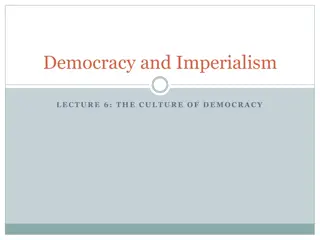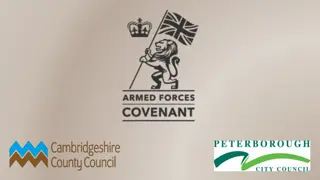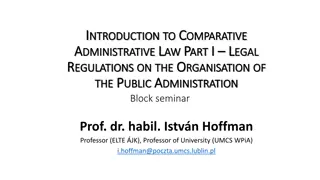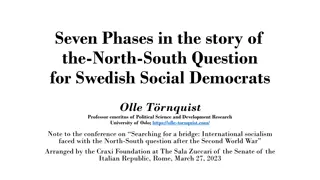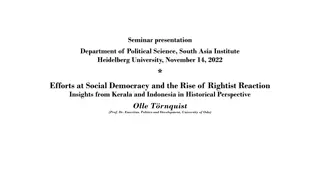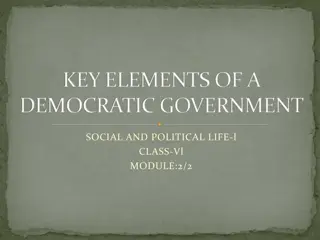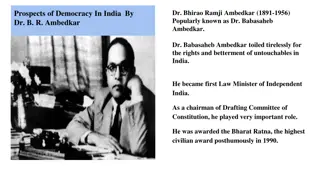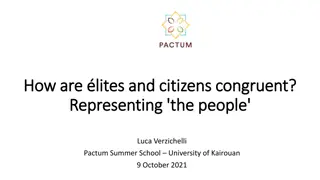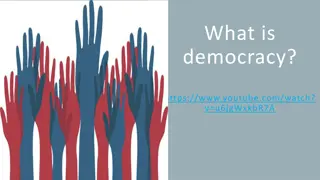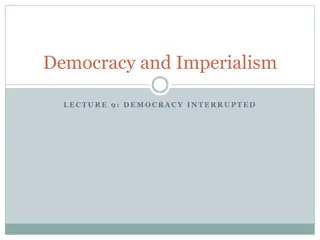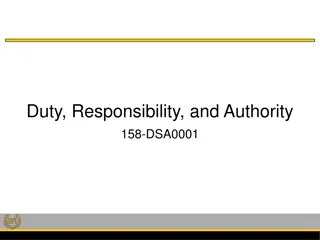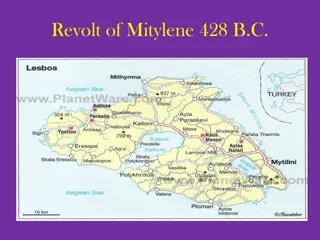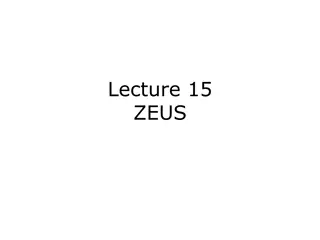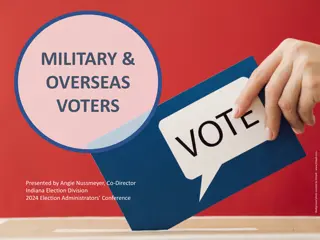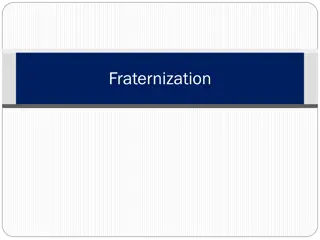Athenian Democracy vs Spartan Military State: A Comparison
The rivalry between Athens and Sparta is characterized by contrasting political systems and societal structures. Athens followed a path towards democracy with key figures like Draco, Solon, and Cleisthenes shaping its government, while Sparta maintained a strict military state led by two kings and emphasizing military training. Citizenship, education, social order, and government structures were notably different between the two city-states, reflecting their unique values and priorities.
Download Presentation

Please find below an Image/Link to download the presentation.
The content on the website is provided AS IS for your information and personal use only. It may not be sold, licensed, or shared on other websites without obtaining consent from the author. Download presentation by click this link. If you encounter any issues during the download, it is possible that the publisher has removed the file from their server.
E N D
Presentation Transcript
Greek City States: Athens vs. Sparta
621 BCE Draco develops legal system in which all Athenians (rich or poor) were equal under the law 594 BCE Solon outlaws debt slavert for citizens 500 BCE Cleisthenes organizes citizens into ten groups based on where they lived rather than wealth Allows Assembly to submit laws for debate Creates the Council of 500 to advise the Assembly and propose laws to be voted on Athenian Government: Road to Democracy
Three main bodies Assembly ALL Athenian citizens allowed to vote and debate laws Council of 500 chosen at random- could be ANY Athenian citizen People s Court Citizenship Males, 18 years or older, Athenian, landowners Excludes women, slaves, and Metics (Greeks not born in Athens) Athenian government: Road to Democracy
4 main branches Assembly Voted on laws, elected officials Composed of ALL Spartan Citizens Council of Elders Made up of 30 older citizens Proposed laws for the Assembly to vote on Five Officials Carried out the laws Controlled education Prosecuted court cases Two Kings ruled over military Spartan Government: Military State
Citizens people descended from original inhabitants of Sparta Could participate in government Could own land Spent their life serving Spartan military Free Non-Citizens born somewhere else in Greece. Could own businesses but could not participate in government Helots conquered people, or slaves. Worked in the fields or as house servants Spartan Social Order
Education available for sons of wealthy families began at age 7 Centered around the idea of good citizenship Classes in reading, writing, public speaking, logic, history, and math (needed to be good speakers and debaters in the Assembly) Spent time in Athletic and military training as well, to be able to defend Athens Took classes in Sculpture, poetry, music, literature using the mind to create beauty was valued in Athens Education: Athens
Boys left home for military barracks at age 7 Stayed there until the age of 30 Education in the barracks consisted of marching, battle tactics, fight training NO individual expression- Spartan boys were one of the group Did not value the arts, literature, or intellectual pursuits Emphasis on developing toughness Wore no shoes and light tunics slept without blankets on hard benches Meals= porridge; boys were encouraged to steal food if still hungry produced resourceful soldiers Education: Sparta
Girls did not attend school Educated at home learned to make clothes, cook, manage a household, raise kids Some women did learn to read and write, but overall, women kept out of Athenian society NOT citizens, could not participate in government Women: Athens
Spartan girls received military training Played sports, wrestled, ran Considerable Freedom Allowed to run the home and business while men were at war Service to Sparta over Service to Family Tough girls gave birth to tough soldiers Women: Sparta


